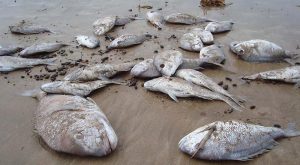In early February the Minister Stuart Nash released proposals to incentivise good fishing practices and provide better information. Feedback to Ministry on the ‘Fisheries Change Programme’ is required by mid-March. On the surface the proposals seem okay, but when you pull up the blankets there are loopholes for commercial interests to slide through with no penalties for more than 30 years of fish dumping.

The suggestion that a land-all catch policy to legitimise the capture of small fish will provide “better information” is a fallacy. The economic incentive to dump fish will remain and the Ministry’s ability to enforce the rules at sea is pathetic.
Our fisheries are precious. They belong to our kids and theirs. What we do now matters so it is very frustrating to read the ‘Change Programme’ when all we want are effective policies and measures to stop the wanton waste of small fish and destructive trawling inside the 12 nautical mile zone.
This is not a PR problem Minister. To solve a problem you first have to identify the real issues. The proposals are woefully short of detail on the raft of problems that will arise from landing hundreds of tonnes of unmarketable fish and demands for more quota to cover this catch.
We need to commit to policy changes for higher standards that reduce fishing mortality and restore abundance.
If this is the best the Minister can do then it just reaffirms our fears that the whole regime is captured and any new proposals must only be within the tramlines. Our problem is that we have no idea what those boundaries are or who controls the invisible hand that limits the Minister’s scope.
Over the past 30 years quota holders have grown bolder and the pathway to abundance has become littered with potholes. Depletion of the Bay of Plenty, Hawke’s Bay fisheries and Tasman Bay scallops are testament to the powerful influence being wielded.
The sad irony is that Section 11 of the Fisheries Act already gives the Minister scope to limit catches or species that can be harvested, to close areas, ban fishing methods and specify fishing seasons. When combined with the Act’s sustainability and precautionary principles that ought to be enough to deliver on the promise to sustain our fisheries for future generations. Clearly not. Change is required Minister, but we must first peel back the layers that are smothering meaningful change.





